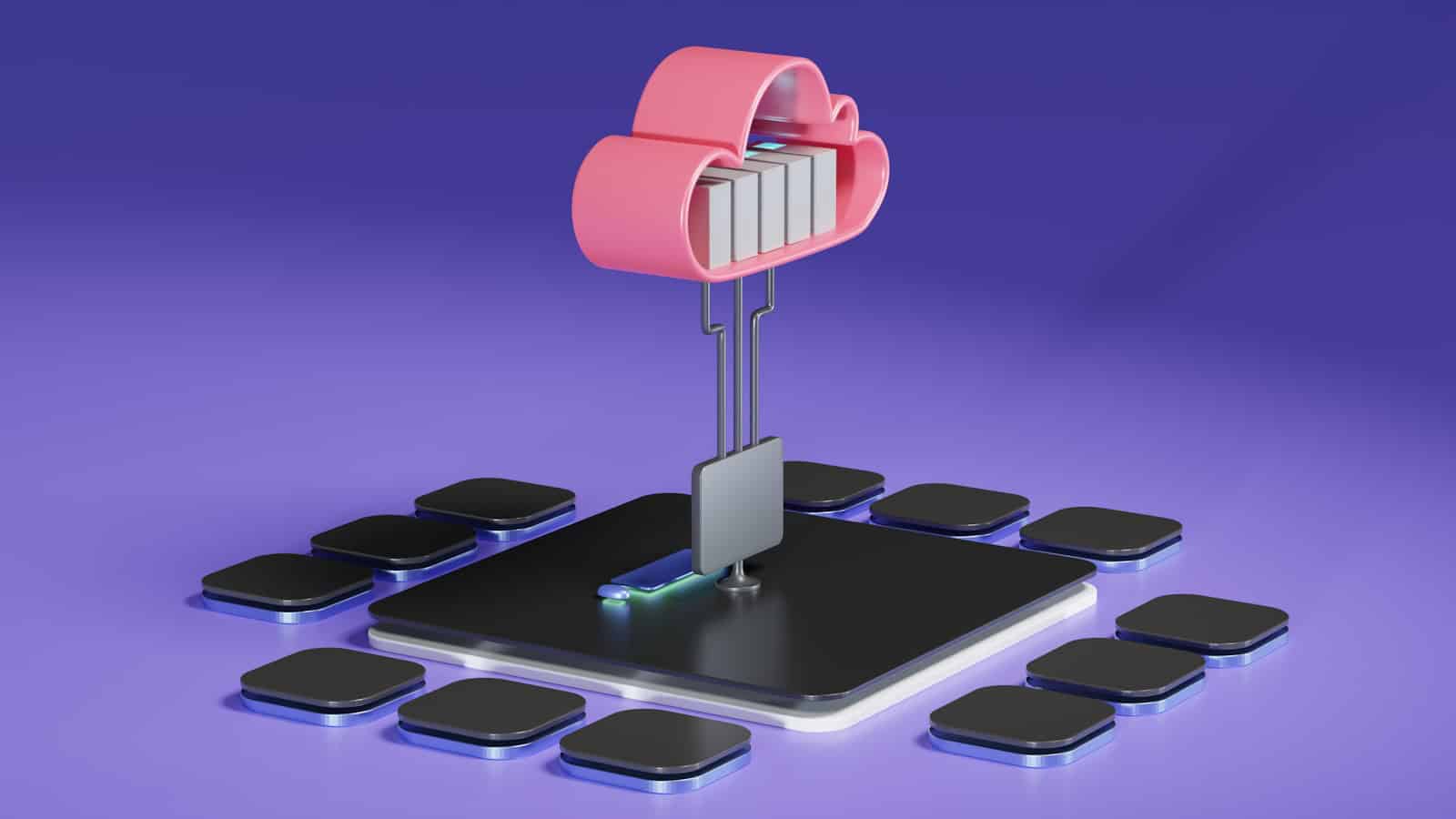Quantum computers are no longer just a theoretical concept. As of 2024, functional quantum computers exist, but they are still in early stages of development and have limited practical applications. These machines harness quantum mechanical phenomena like superposition and entanglement to perform certain calculations much faster than classical computers.
Major tech companies and research institutions are racing to build more powerful quantum computers. IBM, Google, and others have created quantum processors with dozens or hundreds of qubits. These can solve specific problems quickly, but they’re not yet ready for widespread use. Quantum computers struggle with errors and need extremely cold temperatures to operate.
Current quantum computers are mostly used for research and testing potential applications. Scientists are exploring how they might revolutionize fields like cryptography, drug discovery, and financial modeling. But quantum supremacy – where quantum computers definitively outperform classical supercomputers – remains a future goal.
| Quantum vs Classical Computers | |
|---|---|
| Quantum Computers | Classical Computers |
| Use qubits | Use bits |
| Leverage superposition | Binary (0 or 1) states |
| Prone to errors | More stable |
| Limited availability | Widely available |
| Specialized tasks | General-purpose computing |
The Current State of Quantum Computing
Quantum computing is a new field. It uses the principles of quantum mechanics to perform powerful calculations. Quantum mechanics is the study of how tiny particles behave.
Do Quantum Computers Exist?
Yes, quantum computers exist today. However, they are still in the early stages of development. Companies like Google, IBM, and IonQ have built working quantum computers. These machines are not yet powerful enough to solve practical problems.
What Can Quantum Computers Do?
Quantum computers can solve certain types of problems much faster than classical computers. These problems include:
- Breaking encryption codes
- Simulating molecules for drug discovery
- Improving financial modeling
- Developing new materials
The Challenges of Quantum Computing
Building and using quantum computers is difficult. Some of the challenges include:
- Qubits are fragile: Quantum computers use qubits to store information. Qubits are delicate and easily disrupted.
- Error correction is hard: Quantum computers are prone to errors. Researchers are working on ways to correct these errors.
- Scalability is limited: Building large-scale quantum computers is a major challenge.
Recent Advances in Quantum Computing
There has been a lot of progress in quantum computing lately. Here are some notable advances:
- Google’s new quantum chip: Google recently announced a new quantum chip with 72 qubits. This chip is more stable and has lower error rates than previous chips.
- IBM’s quantum roadmap: IBM plans to build a 1,000-qubit quantum computer by 2023. The company is also working on making quantum computers more accessible to users.
- IonQ’s trapped-ion technology: IonQ uses a different approach to quantum computing. It traps ions in electric fields. This technology may have advantages in terms of stability and scalability.
The Future of Quantum Computing
Quantum computing has the potential to revolutionize many fields. However, the technology still has a long way to go. It will likely be many years before quantum computers are widely used.
Quantum Computing vs. Classical Computing
How do quantum computers differ from the computers we use every day? Classical computers use bits to store information. Bits can be either 0 or 1. Quantum computers use qubits. Qubits can be 0, 1, or both at the same time. This is called superposition. Superposition allows quantum computers to perform calculations much faster than classical computers.
Fundamentals of Quantum Computing
Quantum computing harnesses the principles of quantum mechanics to process information in ways classical computers cannot. This revolutionary approach offers potential advantages in solving complex problems across various fields.
Quantum Mechanics and Computation
Quantum computing relies on key quantum mechanical phenomena. Superposition allows quantum systems to exist in multiple states simultaneously. Entanglement creates correlations between particles that can persist over large distances. These properties enable quantum computers to perform certain calculations much faster than classical computers.
Quantum systems use atoms, ions, photons, or electrons as physical qubits. Researchers manipulate these particles using lasers, microwave pulses, or magnetic fields. The goal is to create stable qubits that can maintain quantum states long enough to complete computations.
Different quantum computing architectures are being explored:
- Superconducting circuits
- Trapped ions
- Photonic systems
- Topological qubits
Each approach has unique advantages and challenges in qubit control and scalability.
Qubits vs Classical Bits
Classical bits store information as either 0 or 1. Qubits can exist in superpositions of 0 and 1 simultaneously. This allows quantum computers to process multiple states in parallel.
| Property | Classical Bit | Qubit |
|---|---|---|
| States | 0 or 1 | Superposition of 0 and 1 |
| Operations | Logic gates | Quantum gates |
| Scaling | Linear | Exponential |
A system of n qubits can represent 2^n states at once. This exponential scaling gives quantum computers an advantage for certain problems.
Quantum gates manipulate qubits to perform computations. Unlike classical logic gates, quantum operations are reversible and can create entanglement between qubits.
Quantum Algorithms and Complexity
Quantum algorithms exploit quantum phenomena to solve problems faster than classical methods. Some notable examples:
- Shor’s algorithm for integer factorization
- Grover’s algorithm for searching unsorted databases
- Quantum approximate optimization algorithm (QAOA)
These algorithms offer speedups for tasks relevant to cryptography, optimization, and machine learning. However, quantum computers are not universally faster than classical ones.
Quantum complexity theory studies the resources required to solve problems on quantum computers. Some problems remain difficult even for quantum computers. Identifying which tasks benefit most from quantum computing is an active area of research.
Developing practical quantum algorithms faces challenges:
- Limited qubit coherence times
- Error correction requirements
- Difficulty in scaling up qubit numbers
Overcoming these hurdles is crucial for realizing the full potential of quantum computing.
Technological Implementation
Quantum computers rely on cutting-edge technologies to harness quantum mechanical phenomena. The development of these systems involves specialized materials, intricate designs, and ongoing innovations to overcome significant challenges.
Materials and Design
Superconducting qubits are a leading technology in quantum computing. These qubits use superconducting circuits cooled to near absolute zero. A dilution refrigerator maintains the extremely low temperatures needed for operation.
Trapped ions offer another approach. They use individual atoms suspended in electromagnetic fields as qubits. This method provides excellent coherence times but faces scaling difficulties.
Key components in quantum computer design:
- Quantum processors
- Control electronics
- Quantum memory
- Error correction systems
The choice of materials is crucial. Researchers explore various options to improve qubit performance and stability.
Challenges in Scaling and Error Correction
Scaling up quantum systems presents major hurdles. As the number of qubits increases, so does the complexity of controlling and maintaining quantum states.
Error rates pose a significant challenge. Quantum states are fragile and prone to decoherence. This leads to errors in computations. Fault tolerance is a key goal to make quantum computers practical.
Error correction techniques:
| Technique | Description | Advantage |
|---|---|---|
| Surface codes | Uses many physical qubits to create logical qubits | Robust against common errors |
| Topological codes | Employs geometric properties for protection | Potentially more efficient |
Noise reduction is crucial. Researchers work on improving qubit isolation and developing noise-resistant gates.
Innovations in Quantum Hardware
Recent breakthroughs are pushing quantum computing forward. New qubit designs aim to increase coherence times and reduce error rates.
3D integration techniques allow for more complex quantum circuits. This approach helps in scaling up the number of qubits while maintaining control.
Hybrid systems combine quantum and classical components. They leverage the strengths of both to create more practical quantum computers.
Companies like IBM, Google, and Intel are investing heavily in quantum hardware. Their efforts focus on increasing qubit counts and improving qubit quality.
Emerging technologies such as topological qubits show promise for future quantum computers. These could offer better stability and error protection.
Quantum Computing Applications
Quantum computers offer revolutionary capabilities for solving complex problems across various fields. These advanced systems leverage quantum mechanics to tackle challenges beyond the reach of classical computers.
Cryptography and Encryption
Quantum computing poses both threats and opportunities in cybersecurity. Quantum computers could potentially break many current encryption methods, making data vulnerable. This risk has spurred the development of quantum-resistant cryptography.
Quantum key distribution (QKD) offers a solution for secure communication. It uses quantum properties to create unbreakable encryption keys. QKD detects any eavesdropping attempts, ensuring data privacy.
Researchers are also working on post-quantum cryptography algorithms. These aim to withstand attacks from both classical and quantum computers. Implementing these new methods will be crucial for future cybersecurity.
Simulations in Physics and Chemistry
Quantum computers excel at simulating quantum systems, a task that overwhelms classical computers. This ability opens new frontiers in physics and chemistry research.
In physics, quantum simulations can model complex particle interactions. This aids in understanding fundamental forces and exploring new materials. Researchers can study phenomena like superconductivity and quantum phase transitions.
For chemistry, quantum computers enable precise molecular simulations. You can model chemical reactions and design new compounds more efficiently. This has implications for drug discovery and materials science.
| Application | Potential Impact |
|---|---|
| Physics | Advanced materials, energy solutions |
| Chemistry | New drugs, better catalysts |
Complex Problem Solving
Quantum algorithms offer significant speedups for certain computational tasks. You can use them to tackle optimization problems in various industries.
In logistics, quantum computers can optimize routes and supply chains. This leads to more efficient transportation and inventory management. Financial institutions can use quantum algorithms for portfolio optimization and risk analysis.
Artificial intelligence also benefits from quantum computing. Quantum machine learning algorithms can process complex datasets faster. This enhances pattern recognition and predictive capabilities.
Quantum computers shine in solving problems with vast solution spaces. They can explore multiple possibilities simultaneously, finding optimal answers quicker than classical methods.
The Quantum Landscape
Quantum technologies are progressing rapidly. Key developments include quantum computers, communication systems, and sensors. Researchers and companies are making strides in hardware, software, and applications.
Current State of Quantum Technologies
Quantum computers now exist but remain limited. They use qubits that can be in multiple states at once through superposition. This allows them to solve certain problems faster than classical computers.
Leading quantum processors have around 100 qubits. IBM and Google have demonstrated quantum advantage for specific tasks. But general-purpose quantum computers are still years away.
Quantum communication networks are being built in several countries. These use entangled particles to enable secure data transmission. China has launched a quantum satellite for long-distance quantum key distribution.
Quantum sensors leverage quantum effects for ultra-sensitive measurements. They’re finding uses in navigation, medical imaging, and scientific research.
Quantum Research and Education
Universities worldwide are expanding quantum science programs. Caltech and other top schools offer degrees in quantum engineering. This is creating a pipeline of quantum talent.
Government agencies like NIST fund quantum research. The U.S., EU, China and others have multi-billion dollar national quantum initiatives. These support basic research and technology development.
Private companies are also investing heavily. Tech giants like IBM, Google, and Microsoft have large quantum teams. Startups are emerging to tackle specific quantum challenges.
| Entity | Role in Quantum Landscape |
|---|---|
| NIST | Standards and metrology |
| Caltech | Education and research |
| IBM | Hardware and software |
| Startups | Specialized applications |
Future Prospects and Challenges
Scaling up quantum systems is a major hurdle. Researchers are working to increase qubit counts and quality. Error correction and fault tolerance are crucial for practical quantum computers.
Quantum technologies could transform fields like drug discovery and financial modeling. But realizing this potential requires overcoming noise and decoherence issues.
Quantum-resistant cryptography is an active area of research. It aims to protect against future quantum computer attacks on current encryption.
The quantum internet may enable new forms of secure communication. But its development faces significant technical challenges.
Frequently Asked Questions
Quantum computers represent a significant leap in computing technology. They operate on principles of quantum mechanics and offer potential advantages in certain computational tasks.
How do quantum computers function?
Quantum computers use qubits instead of classical bits. Qubits can exist in multiple states simultaneously due to superposition. This allows quantum computers to process complex calculations faster than traditional computers in some cases.
What are the primary uses of quantum computers currently?
Current quantum computers are mainly used for research and development. They show promise in optimization problems, cryptography, and simulating quantum systems. However, practical applications are still limited due to technological challenges.
How many quantum computers have been developed to date?
Several companies and research institutions have developed quantum computers. IBM, Google, and others have built prototypes. The exact number is difficult to determine as development is ongoing and not all projects are public.
What advancements has IBM made in quantum computing?
IBM has made significant strides in quantum computing. They offer cloud access to their quantum computers for researchers and developers. IBM has also increased the number of qubits in their systems and improved quantum error correction.
What are the potential future capabilities of quantum computers?
Future quantum computers may revolutionize fields like drug discovery, financial modeling, and artificial intelligence. They could potentially solve problems that are currently intractable for classical computers. However, widespread practical applications are likely years away.
Has NASA integrated quantum computers into their operations?
NASA has shown interest in quantum computing for complex space exploration calculations. However, full integration into their operations has not yet occurred. They continue to research potential applications in areas like mission planning and data analysis.
| Aspect | Classical Computers | Quantum Computers |
|---|---|---|
| Basic unit | Bit (0 or 1) | Qubit (superposition) |
| Processing | Sequential | Parallel |
| Best for | Everyday tasks | Complex calculations |
| Current state | Widespread use | Early development |
| Error rates | Very low | High, improving |







